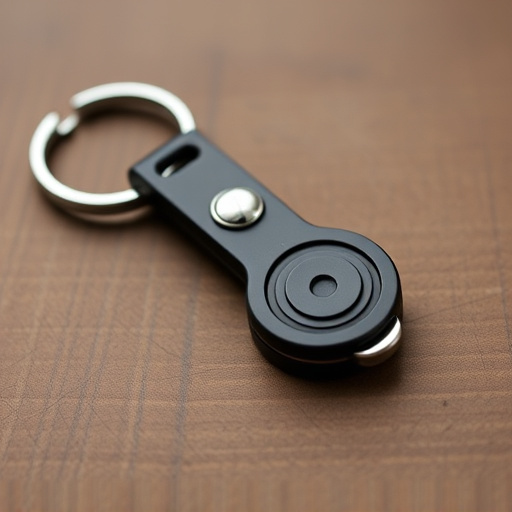The "Metal Keychain Kubaton for Protection" is a small, portable self-defense tool with varying legal status across US states. Laws differ widely, considering factors like purpose, location, and restrictions on use to distinguish self-defense from weapons. Responsible carrying requires understanding local regulations, practicing secure yet discreet handling, and staying updated on legal changes.
In today’s unpredictable world, self-defense is a priority. One compact solution gaining popularity is the metal keychain kubaton—a powerful tool for personal protection. However, understanding legal requirements surrounding these devices is essential before wielding them. This article navigates the complexities of self-defense keychain laws, exploring state-specific regulations and clarifying what constitutes legal defense under the law. Discover best practices for safe and compliant carrying, ensuring your metal kubaton serves as a reliable tool for protection without crossing legal boundaries.
- Understanding Legal Definitions: What Counts as a Self-Defense Keychain?
- State-Specific Laws: Exploring the Rules in Your Region
- Metal Kubaton Usage and Limitations: A Legal Perspective
- Ensuring Safety and Compliance: Best Practices for Carrying a Self-Defense Keychain
Understanding Legal Definitions: What Counts as a Self-Defense Keychain?
In the context of self-defense, understanding what constitutes a legal keychain can be crucial. The term ‘self-defense keychain’ often refers to small, portable devices designed for personal safety, typically featuring a metal keychain with a hard edge or point. These tools are marketed as kubatons—a type of self-defense weapon that can be easily carried on keys or attached to bags. However, it’s essential to recognize that laws surrounding these devices vary significantly across states and jurisdictions.
A ‘metal keychain kubaton for protection’ is generally considered a non-lethal weapon meant for deterrence and defense in potentially harmful situations. Yet, legal definitions can include specific requirements on size, weight, and force capabilities, distinguishing them from regular keychains. Some states may have restrictions on the type of metal or the shape, ensuring that these devices do not cause excessive harm. Thus, understanding local legislation is vital to ensure compliance and recognize one’s rights regarding self-defense tools like keychains.
State-Specific Laws: Exploring the Rules in Your Region
In the United States, the legal landscape surrounding self-defense keychains, also known as Kubatons due to their metal construction, varies from state to state. Understanding your region’s specific laws is crucial before carrying such a device for protection. Each state has its own set of regulations that dictate when and where these tools can be possessed and used. For instance, some states allow self-defense keychains under certain circumstances, such as if they are used in response to an imminent threat. Others may have restrictions on the type of metal or size of the keychain, with some even prohibiting them altogether.
When exploring state-specific laws, it’s essential to research your local regulations. Metal keychain Kubatons for protection should only be carried and used responsibly, adhering to legal boundaries. Some states might require permits or registration for such devices, while others may have specific rules about where they can be advertised or sold. Staying informed about these details ensures that you remain within the legal framework and use your keychain as a means of self-defense without crossing any boundaries.
Metal Kubaton Usage and Limitations: A Legal Perspective
In many jurisdictions, the use of a metal keychain kubaton as a self-defense tool is governed by specific legal requirements. These laws vary widely from state to state, but generally, they consider factors such as the purpose for carrying the device, the location, and any restrictions on its use. The key considerations revolve around whether the kubaton is seen as a weapon or a tool for protection. If deemed a weapon, its possession and use could be subject to stricter regulations, including permit requirements and restrictions on when and where it can be carried.
From a legal perspective, the portability and accessibility of a metal keychain kubaton make it an attractive option for personal protection. However, courts often scrutinize the intent behind carrying such a device. While self-defense is generally recognized as a valid purpose, any aggressive or offensive use could lead to legal consequences. It’s crucial for individuals considering a metal keychain kubaton for protection to understand their state’s specific laws and remain within the legal boundaries to ensure they are not breaking any regulations.
Ensuring Safety and Compliance: Best Practices for Carrying a Self-Defense Keychain
Ensuring Safety and Compliance: Best Practices for Carrying a Self-Defense Keychain
When carrying a metal keychain kubaton for protection, it’s paramount to prioritize safety and adhere to local legal requirements. Always stay informed about your state’s regulations regarding self-defense tools, as laws can vary widely. Check if the keychain is permitted as a defense device in public spaces, workplaces, or any areas you frequently visit. Familiarize yourself with the specific rules surrounding metal keychains, as some states may have restrictions on carrying potentially dangerous objects.
To maintain compliance and ensure safety, practice responsible handling of your kubaton. Keep it secured within easy reach but not so obvious that it could be easily accessed by unintended individuals. Avoid displaying it openly in public, and store it safely when not in use. Regularly review local laws to stay updated on any changes regarding self-defense tools, as legislation is subject to revision and amendments.
When considering a metal keychain kubaton for personal protection, understanding your state’s specific laws is paramount. This comprehensive guide has navigated through legal definitions, explored regional regulations, and examined the usage and limitations of these self-defense tools. By adhering to best practices and prioritizing safety, you can ensure compliance while empowering yourself with peace of mind. Remember, knowledge is key when it comes to protecting yourself, but always stay within legal boundaries to maintain your safety and security.
